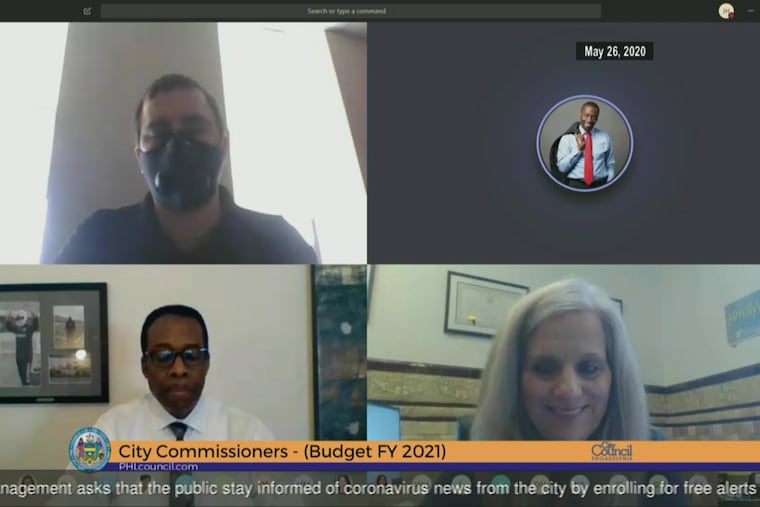Coronavirus budget cuts are a threat to the November election, Philly elections chief warns
Elections officials face significantly increased costs due to new voting machines, major changes to state election law, increased presidential-year turnout, and pandemic-related shifts in voter behavior.

Proposed coronavirus-related budget cuts in Philadelphia could jeopardize the city’s ability to properly conduct the November presidential election, its top elections official said Tuesday, delivering a stark warning as she pleaded for more money.
“Quite frankly, with the current budget that we have going on right now, we would be in danger of not being able to have the November election,” Lisa Deeley, chair of the Philadelphia city commissioners, told members of City Council during a budget hearing.
Elections officials face significantly increased costs this year due to new voting machines, major changes to state election law, increased presidential-year election turnout, and pandemic-related shifts in voter behavior and election administration, Deeley said.
Before the pandemic hit, Mayor Jim Kenney had proposed an 84% increase to the $12.2 million budget for the commissioners, the three elected officials who run elections. But he threw out that idea in his revised budget, and is instead proposing to keep elections funding flat for the coming fiscal year.
It’s not clear why the commissioners would be unable to run the general election in November, which takes place in the first few months of the fiscal year. Barring any unexpected special elections popping up, November’s election will be the first in which the commissioners would be spending the new fiscal year’s money.
Nick Custodio, Deeley’s deputy commissioner, said in a statement Tuesday evening that many of the increased costs the commissioners face this year have not yet been budgeted, including the additional staff to process voter registrations and mail ballot applications.
“If your budget is not revisited,” he said, “we will run into issues being able to hold the elections.”
Kenney said Tuesday that his administration believes it budgeted enough to hold the November election, “or we wouldn’t have suggested it.” But he said he’s still working through budget concerns with all city departments.
“We will have a ways to go in trying to figure that out," Kenney said at a news conference Tuesday. "But there will be an election in June and in November.”
Managing Director Brian Abernathy said the city is also hoping to receive state and federal funding to help with election costs.
Kenney faces a major financial challenge as he seeks to fill an estimated $649 million gap in the city’s $4.9 billion budget. This month, he released his revised spending plan for the 2021 fiscal year, which begins July 1. Kenney is proposing tax hikes, layoffs of hundreds of city workers, and budget cuts across the city.
City Council must pass a budget by the end of June. It can still make changes to Kenney’s proposed budget.
In Tuesday’s hearing, Deeley urged councilmembers to increase funding for elections, or at least revisit her budget in a few months.
“We understand that the newly proposed budget is a COVID budget and that the city is unsure of what revenue will look like and what financial resources will be coming from the state and federal governments,” she said. “But please know that the cost of running elections has dramatically increased and we will likely not have the funds to make it through [the next fiscal year.]”
» READ MORE: Thousands of Pennsylvania voters might not get their mail ballots in time to actually vote
Elections officials across the state have struggled to pull off a smooth primary during the pandemic. The city commissioners have had to contend not only with new voting machines, which they implemented last November due to a statewide order from Gov. Tom Wolf, but also sweeping changes to state law and a pandemic-related surge in mail ballots. Things could well be worse in November, Deeley and other county officials have warned.
Councilmembers asked about a number of possible initiatives for voter outreach in November, including proactively sending mail ballot applications to registered voters and setting up early voting locations. But Deeley and Custodio said that type of work would require significant increases in funding.